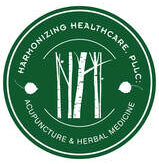We are happy to have our guest writer again on our blog today, Dana Brown. Dana is the creator of HealthConditions.info, which aims to provide Internet users with helpful content and resources that will lead them to making healthier decisions. We really appreciate his time in helping teach people how to create healthier lives. Thanks Dana!
Being told you have cancer can be a huge blow. It can set in motion a lot of anguish and upset, and even anxiety and depression. But what happens after the diagnosis? Dealing with the swirl of emotions and the impact it can have on one’s spiritual wellness and sense of control takes a lot of effort. Yet there are things you can do to help you manage this, and bring joy back into your life.
Set Personal Rituals
Rituals can be deeply personal and practical. They can be about routine, or they can be about values and feelings. You can start mornings with mantras and spiritual poems, and curl up at the end of the day with a favorite drink and a book. Personal rituals can help you through each of your days, all the more important when they become difficult. Practically, they can also be about giving yourself leeway for self-care. They can remind you to get enough sleep, food, and hydration, and take a few steps back while your loved ones lessen the load. Routines and rituals can cultivate structure and help you better focus on your general well-being.
Find Joy
Joy can seem like an impossibility after the diagnosis, yet your diagnosis can be the catalyst to give yourself experiences you’ve always dreamed of. Think of hobbies and interests you’ve long been interested in but kept putting off. It could be anything from culinary classes to visiting an amusement park. It may be more focused on giving back, perhaps in the form of mentoring or volunteering. Think about starting up a list of all the activities you’d like to try, and the goals and aspirations you’d love to accomplish. Whether that’s going back to school or traveling to Europe, you can give yourself a future that’s more than just about achieving remission. Give thought to reaching out to others, perhaps fellow survivors, whom you can share your experiences with in addition to your loved ones. Pursuing joyous things can help create purpose and focus invaluable to one’s spirit, and create foundations for a centered, happy life beyond the wonderful all-clear.
Find Peace
The word “cancer” can shatter one’s inner equilibrium and upturn everything. Achieving some semblance of peace can help to reclaim some of the lost control. As with finding joy, consider creating a list of practices that may help. Spending time in nature, meditating, and practicing yoga are some of the things that can help you find a sense of calm and relieve stress. In addition, contact a cancer center to see if they provide mindfulness classes. Developing mindfulness techniques can help manage negative emotions and thoughts, and offer reflection and welcome respite. While you find what’s best to bring peace into your life, consider writing a journal or online blog to document progress. It can be truly uplifting for one’s spiritual well-being to express our thoughts and what we have gained. By investing in introspective pursuits, you may find greater acceptance of your situation.
Safely Using Opioids
Treatment is scary enough without other fears, but there can be when it comes to opioids. They’re effective pain management, but they can be addictive. It’s crucial, therefore, to use opioids carefully and be aware of red flags. First of all, if there’s any history of addiction, it’s essential to tell your doctor. Communicate concerns often, especially if you start experiencing compulsions or urges to use more than prescribed. Pain relief is exactly that, and shouldn’t be used to reduce stress or adverse emotions. That can quickly escalate into full-blown addiction. Remember, however, that pain needs to be treated, and opioids can do that. Your dosage may be increased, but that doesn’t mean you’re addicted. Tolerance, unfortunately, can just happen. Withdrawal symptoms can happen, too, but that also doesn’t mean addiction. Whatever happens, don’t stop taking medication without a doctor’s approval. You deserve relief no matter what.
Alternative treatments
While pain medication may be a necessary part of your treatment, there are numerous holistic, non-pharmaceutical methods by which you can deal with pain, discomfort, nausea, and anxiety. Massage, acupuncture, cupping, salt room therapy, and Chinese herbal medicine can all have a profound effect on your symptoms and may help you cope with your diagnosis.
Your diagnosis may have brought things to a shuddering halt, but that doesn’t have to be the case. By finding joy and peace, you can give yourself tools to re-energize yourself spiritually and mentally. You’ll hopefully find that what’s gained through recovery will lay the stepping stones to fulfilling a lot of your ambitions in life.
